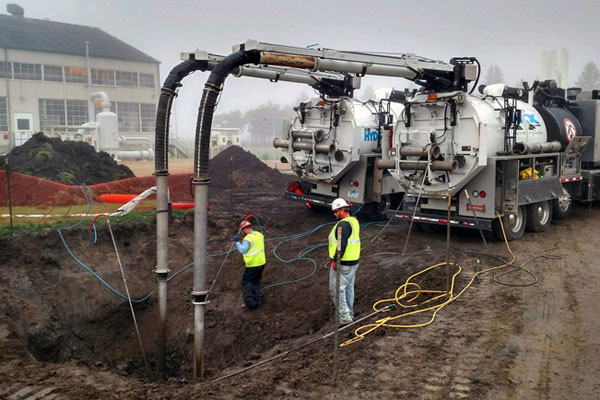Training and certification for hydro-excavation professionals play a pivotal role in ensuring the safe and efficient execution of hydro-excavation operations. Hydro-excavation, also known as vacuum excavation or potholing, is a non-destructive digging method that utilizes pressurized water and a powerful vacuum system to expose underground utilities and structures. As the demand for hydro-excavation services continues to rise, the need for skilled and certified professionals becomes increasingly critical. Comprehensive training programs for hydro-excavation professionals typically cover a range of essential topics, including equipment operation, safety protocols, regulatory compliance, and job site management. These programs are designed to equip individuals with the knowledge and skills necessary to perform hydro-excavation tasks accurately and safely. Hands-on training, often conducted with industry-standard equipment, allows participants to become familiar with the intricacies of the machinery and gain practical experience in various job scenarios. Classroom instruction complements the practical training, providing a theoretical foundation that encompasses hydrology, soil types, and industry best practices.

Safety is paramount in hydro-excavation, given the potential hazards associated with pressurized water, powerful vacuum systems, and the proximity to buried utilities. Certification programs prioritize safety training, covering topics such as hazard recognition, emergency response procedures, and personal protective equipment PPE usage. Professionals must demonstrate their ability to identify and mitigate risks associated with the job, ensuring a secure work environment for themselves and their colleagues. Regulatory compliance is another crucial aspect addressed in training and certification programs. Hydro-excavation professionals must be well-versed in local, state, and federal regulations governing excavation activities. This includes understanding permit requirements, environmental considerations, and adherence to industry standards. Certification programs often incorporate updates on regulatory changes, ensuring that professionals stay current with evolving compliance requirements. Job site management is a key component of hydro excavation contractor in Green Bay training, as professionals need to effectively plan and execute projects.
Training programs teach participants how to assess job sites, develop excavation plans, and coordinate with other stakeholders, such as utility owners and project managers. Effective communication skills are emphasized, as hydro-excavation professionals often work in collaborative environments where clear and concise communication is essential for successful project outcomes. To further validate their competence, hydro-excavation professionals can obtain industry-recognized certifications. Certification bodies, often affiliated with professional organizations in the excavation and construction sectors, evaluate individuals based on their knowledge, skills, and adherence to safety and regulatory standards. Achieving certification not only enhances the professional credibility of individuals but also contributes to the overall standardization and quality assurance within the hydro-excavation industry. In conclusion, training and certification for hydro-excavation professionals are integral components of a robust industry framework. These programs ensure that individuals are equipped with the necessary skills, knowledge, and safety awareness to perform hydro-excavation tasks efficiently and securely. As the demand for hydro-excavation services continues to grow, investing in comprehensive training and certification programs becomes essential for professionals seeking to excel in this specialized field.